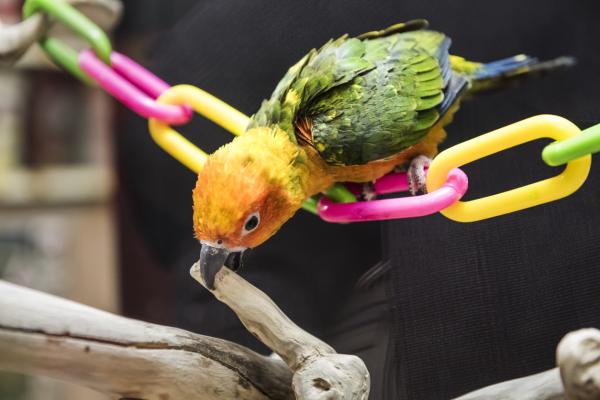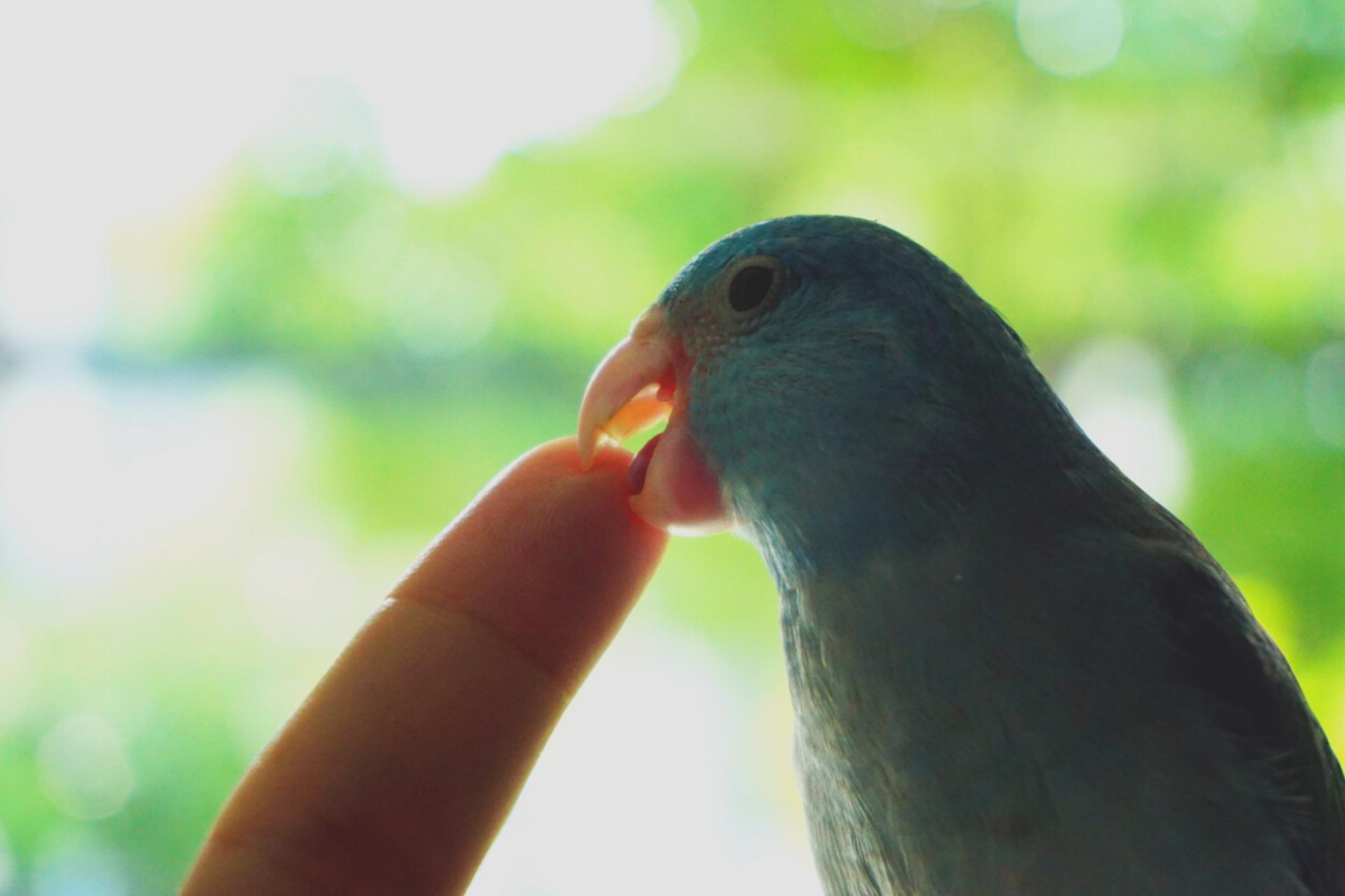Why Is My Parrot Biting Me All of a Sudden?


Parrots are very intelligent and curious animals. They need to discover their environment and mentally challenge themselves. This is one of many reasons you may find them playing with different objects and making noise. However, what does it mean when they suddenly begin to bite you?
In this AnimalWised article, we are going to differentiate between beaking and biting. We're also going to tell you why your parrot is biting you all of a sudden and how to train them to stop this problem behavior.
Difference between beaking and biting
Parrots have two feet and wings, but not hands. They often use their beak to climb up trees, play with objects and communicate with other birds. In other words, beaking and biting are two very important aspects of a parrot's behavior. They are just as useful as our fingers and hands are to us. Beaks allow parrots to experience this world in the mist direct and intimate way. So, what's the difference between beaking and biting?
Beaking is when a parrot gently uses their beak to explore, use a tool, play or climb. As we've said before, their beaks are used as a third hand. It's important to note that baby birds do not realise how strong their beak can be. When they're using their beak to explore their environment, they may cause harm without realising it. This is why training your parrot and learning to communicate with them is very important.
Many new bird companions confuse exploratory beaking with being bitten. However, they are different in their intention and severity. While beaking is an innocent way of using their beak to explore their environment and play, parrots only bite when they are frightened. In the wild, parrots do not use biting to demonstrate dominance. They only truly bite when they are scared and try to defend themselves or their babies.
While beaking is slow and relatively gentle, a true parrot bite is very quick and hard. Parrots tend to accompany the bite with a ruffling of feathers so as to warn you to back away from them because they need space.
Why is my parrot beaking?
Beaking is a healthy habit part of every parrot's life. Your parrot will use their beak to play, eat, interact with other animals and explore their environment. When they are baby birds, they may not realise how hard their beaking can be. To make sure they do not beak too hard, use a low tone to express discontent.
Birds tend to associate high pitch sounds with happiness and low pitch sounds with unhappiness. This does not mean you should scowl your bird or punish them, we never recommend punishment as it will only create behavioural problems and harm your relationship. Simply pull away if they beak too hard and say “that hurt” in a low tone. Your bird will then associate the hard beaking with a bad behavior.
We must understand that beaking is part of their natural behavior. If they continue to beak too hard, consider wearing thicker clothing. We also recommend keeping young children away from them as normal beaking can hurt their soft skin. If your parrots are indeed biting you, you will need to train them differently.

Why is my parrot biting?
Parrots only bite when they are petrified and try to defend themselves. They tend to bite very quickly and ruffle their feathers so you back away from them. The cause of this bite is simply because something has scared them. Perhaps they have been punished or they were cornered and feeling vulnerable. Whatever the reason may be, it's not common behavior, especially in a safe environment. To correct it, we must know exactly what has made them feel scared.
Why does my bird nibble on me?
Another similar behaviour is nibbling. If your parrot is gently nibbling your finger, you shouldn't worry too much about this behavior. As we've mentioned, parrots use their beaks a a hand. It's very useful for climbing and discovering new things. If a parrot want to cause you harm you will notice as it is very different to nibbling.
So, why is your parrot nibbling your fingers or ears? It's simply because they are curious. They are playing and discovering new things. However, young parrots may not realize the strength of their beaks and may nibble on you too hard. Some bird companions even say that their parrot has made them bleed from nibbling. If this happens, we encourage you to train them to realize when they have hurt you. To do so, follow our instructions in the section below.

How to stop parrots from biting
First things first, try to understand what has frightened them so as to avoid it in the future. For more precise guidance on your specific case, consider going to an animal behavior specialist.
Next, we must careful when correcting any bad behavior in parrots as it can be very different in comparison to other animals. Follow these tips to positively train your parrot and help them change their bad behavior:
- Do not use physical or mental punishment.
- Do not yell out or use a high pitched voice.
- Speak softly and calmly in a low voice to express your discontent with their behavior.
- Then, place them back in their bird cage and leave them alone for around 10 minutes. Do not give eye contact as you leave the room.
- Once their “time-out” has finished, come back to interact with them positively.
- Observe their behavior. By now, they should feel better and interact with you positively too.
- Don't forget to ask yourself why they could've felt the need to defend themselves by biting.
Remember to be patient and kind through this process. Biting is a natural reaction that with time and care can be corrected. If you've enjoyed this article, you may also like our article on what food you shouldn't give to your parrot.

If you want to read similar articles to Why Is My Parrot Biting Me All of a Sudden?, we recommend you visit our Behavioral problems category.







